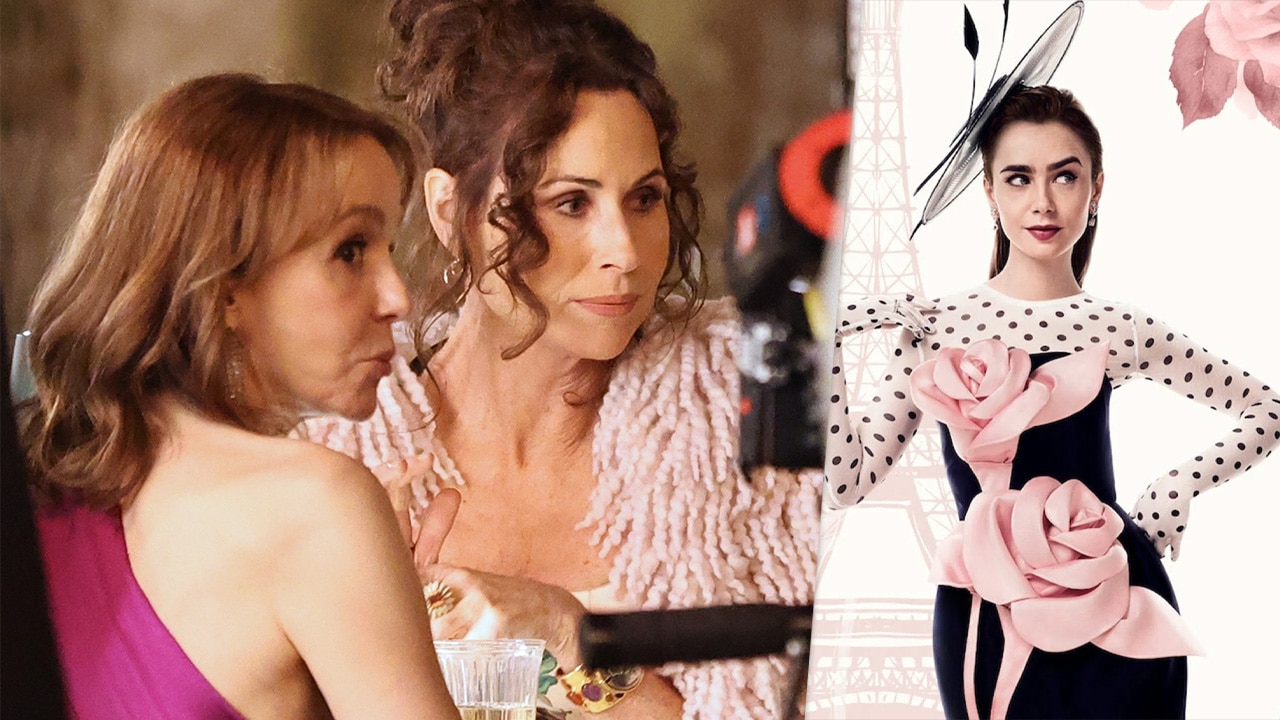In the first production of Lighthouse Festival’s summer season, an eclectic group of underdogs find common ground — while trying not to slip on ice.
That show is The New Canadian Curling Club, by playwright Mark Crawford. Directed by Lighthouse artistic director Jane Spence, the production stars Frank Chung, Mahsa Ershadifar, Chiamaka Glory, John Jarvis, and Andrew Prashad, with previews starting May 21.
Curling Club premiered at the Blyth Festival in 2018 and has since been produced across the country, from Western Canada Theatre in Kamloops to Neptune Theatre in Halifax — breaking at least one box office record at Alberta Theatre Projects along the way.
Despite the ice rink setting, Crawford’s play is anything but chilly. It’s a warmhearted comedy set in a Learn to Curl class for newcomers to a small town in Ontario. When a mishap sidelines the original instructor, the group is left with a new coach who harbours some strong feelings about the sport — and immigrants. But as the team presses on, long-held assumptions begin to thaw.
“I had this idea to write a play about a group of relative strangers who come together with one common goal,” said Crawford in an interview. “I love that kind of narrative: people from disparate parts of a community who come together to form their own little community.”
He recalled how, years ago, someone in a rehearsal room joked: “’You should write a play about curling.’
“People are always telling writers what to write, but for some reason I filed that one away,” Crawford added.
Curling Club is one of several plays from the last decade that explore the dynamics of a sports team, including Flex by Candice Jones, King James by Rajiv Joseph, and The Wolves by Sarah DeLappe. For Crawford, part of curling’s appeal was its relatively small scale. As opposed to the larger teams in basketball or soccer, “there are four people on a [curling] team, and one coach, a perfect [cast] for a play,” he said. Crawford also noted that the sport “is so iconically small-town Canadian. It feels like the perfect setting to explore some of these bigger ideas about established communities versus newcomers, immigration, and Canadian identity.”
The four newcomers in the Learn to Curl class are of Jamaican, Indian, Chinese, and Syrian descent. In writing this diverse group, Crawford — who is white — knew that he had homework to do.
“I don’t know if we were using the term cultural consultant [in 2018],” he said, “but I talked to friends, people I knew, and people I could contact. I did a bunch of reading, and cast the net [wide] in terms of trying to absorb what those experiences were.” His goal was “to create distinct characters with different experiences of… being an immigrant to a smaller community, so that it wasn’t this monolithic [story].”
For scenes with dialogue in the characters’ original languages, Crawford said he “engaged translators, [which led to] bigger conversations about the characters, their situations, and their backstories.”
He also credited the input of actors. “I was fortunate to be in the room the whole time through the premiere production at Blyth,” he said. “Those actors were great at sharing things, as actors are in a premiere, but there was an added layer of wanting to get these stories and these voices as authentic as possible, while still being in an underdog sports comedy [and] marrying those two worlds. I’m grateful to those artists who were involved in that first production — and subsequent productions too, because the play has changed a bit over the years.”
Crawford noted that the recent wave of increased Canadian nationalism, in response to threats from U.S. president Donald Trump, may change how Curling Club is received. “Our very sovereignty was not under attack when I wrote this play,” he said. “We’re experiencing this kind of ‘elbows up’ Canadian patriotism, which is rare for us, I think, as a nation. It’s not without its flaws and its complications, but I think that it will be really interesting to see this play in light of that [question] of who we are as a country and what we stand for.”
At the end of the day, his hope for Curling Club audiences is that “ everyone, no matter where you’re from, or how long you or your people have been in Canada, [has] a great time.”
Crawford “grew up in rural southern Ontario,” where curling was “part of the culture.” But though he has “great admiration” for serious practitioners, “I’m not what anyone would call a curler,” he laughed. “I did go curling a handful of times in order to write this play, and so I know a lot more about the game and that world than I did before.”
That newfound knowledge might have slippery consequences. “I have friends here in Stratford who’ve taken up curling, and who are threatening to rope me into their team next fall,” he joked. “We’ll see!”
The New Canadian Curling Club runs May 21 to June 7 at the Lighthouse Theatre in Port Dover, and June 11 to June 22 at the Roselawn Theatre in Port Colborne. Tickets are available here.
Lighthouse Festival is an Intermission partner. Learn more about Intermission’s partnership model here.






![14th May: Fred and Rose West: A British Horror Story (2025), Limited Series [TV-MA] (6/10)](https://occ-0-7324-1007.1.nflxso.net/dnm/api/v6/Qs00mKCpRvrkl3HZAN5KwEL1kpE/AAAABQ1EMYqh86uHZmNe7VzC2XFlvOCnKximSgaElMeLVr8lM0t1ncb478Rrrf36U5ECbNv5MNDllxMXz_UOyv5QIfITd5KB7-0OWsndUzkhK3hTE1_mjVVLQWMdwiDg3BJfEpkUGjgT8Z9wMh98kAhSQb4CfJG7qZN7MR9pIFW-G3t4m2I0CA4PhsYDKwO8q05m6Ew7Y1jpMg.jpg?r=602)










